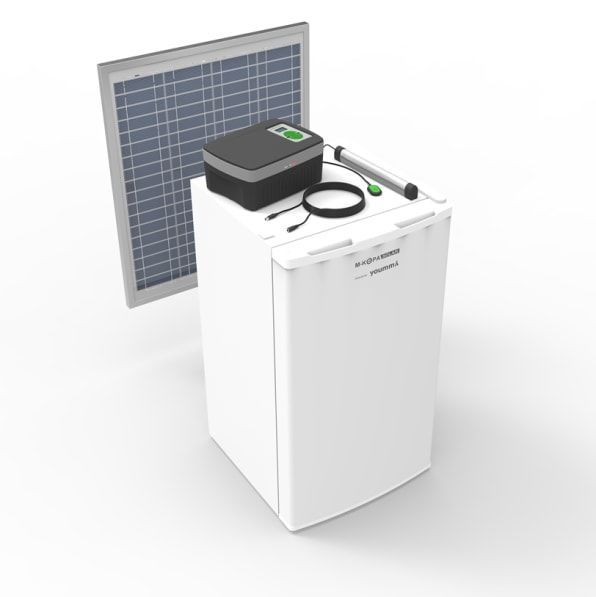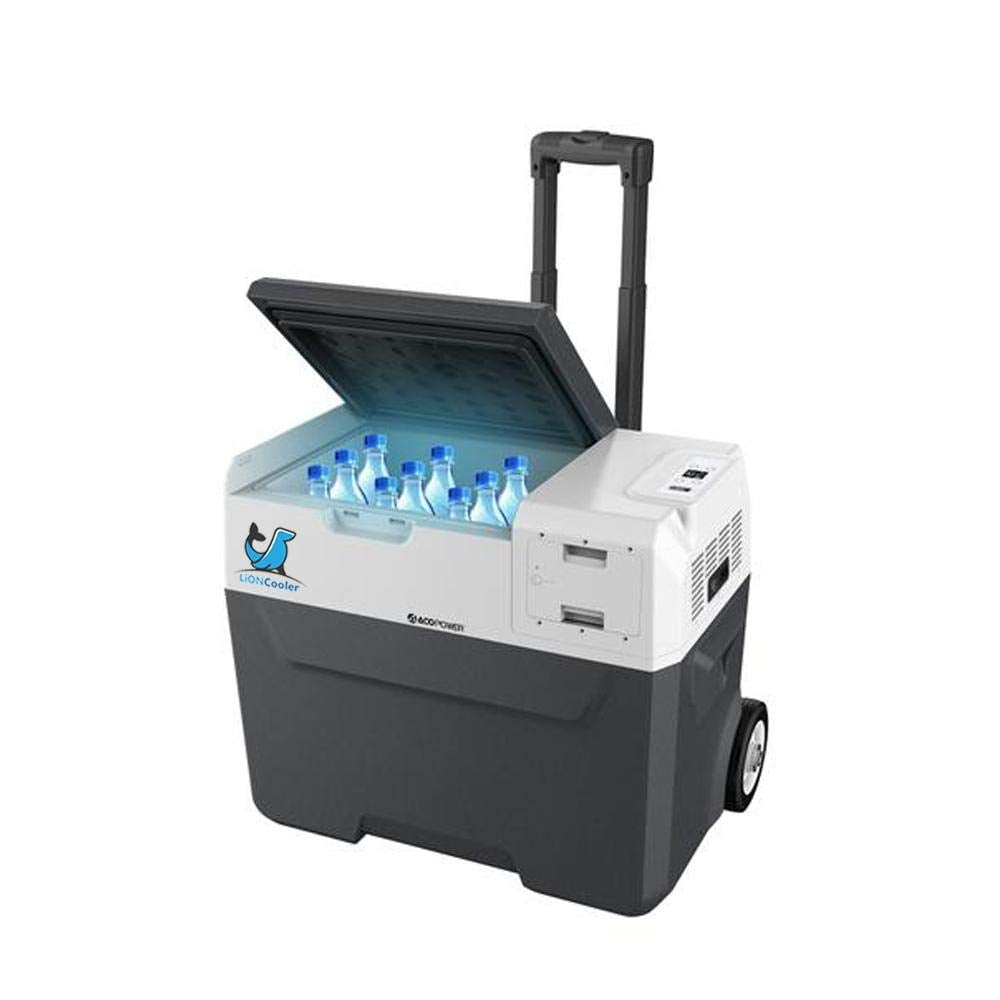The solar refrigerator is the next generation of sustainable cooling.
Check Out the Crucial Attributes of Solar Fridge and Their Effect on Energy Efficiency
The integration of solar refrigerator innovation represents a substantial innovation in power performance, characterized by features such as advanced insulation and smart energy management systems. These parts not just lessen power loss but also ensure ideal efficiency under varying sunlight conditions. Furthermore, the addition of battery storage solutions enables regular refrigeration, even in the lack of straight sunlight, consequently minimizing dependence on traditional electric grids. As we examine these crucial functions, it becomes obvious that their ramifications extend past plain functionality, elevating sixty-four-thousand-dollar questions concerning sustainability and long-term financial stability. What lies ahead in this progressing landscape?
Recognizing Solar Fridge Modern Technology
Solar refrigerator innovation takes advantage of the power of sunshine to give reliable air conditioning solutions, particularly in areas lacking dependable electrical energy. By making use of photovoltaic or pv panels, solar fridges transform sunshine right into power, which is after that utilized to power the cooling system. This ingenious method not only decreases reliance on traditional power sources but also significantly lowers power prices gradually.
The core parts of solar refrigerators include solar panels, a cost controller, batteries, and a refrigeration device. Photovoltaic panel capture sunlight and transform it right into functional energy, while the cost controller manages the flow of electrical power to stop battery overcharging. Batteries store the collected power, allowing the refrigerator to operate also throughout cloudy days or at night. The refrigeration device, which can be a compressor-based or absorption system, does the cooling feature necessary for protecting perishable items.

Trick Attributes of Solar Refrigerators
Among one of the most notable features of solar refrigerators is their energy self-reliance, enabling individuals to depend on sustainable resources for cooling down without the requirement for a typical power grid. This attribute is specifically useful in remote or off-grid locations, where standard electrical energy access is minimal or non-existent.
Solar refrigerators generally utilize photovoltaic or pv panels that transform sunshine right into electricity, powering the refrigeration system efficiently. Many versions integrate sophisticated insulation technology, which minimizes power loss and keeps optimum temperature levels also when sunshine is scarce.
Additionally, solar refrigerators are made with straightforward user interfaces, enabling easy temperature level modifications and tracking. They frequently include attributes such as battery storage space, enabling them to operate successfully during over cast days or nighttime, consequently making sure consistent air conditioning efficiency.
Longevity is one more vital function; created from robust products, these refrigerators are developed to hold up against varying ecological conditions. Lots of versions also flaunt environmentally friendly cooling agents, which add to lower worldwide warming possibility.
Energy Effectiveness Conveniences
Energy effectiveness stands as a substantial advantage of solar refrigerators, making them an attractive selection for environmentally aware customers. By harnessing solar power, these fridges reduce dependence on traditional power resources, significantly decreasing their carbon footprint. This environment-friendly method not only benefits the environment but likewise aligns with global efforts to battle climate change.

Furthermore, solar fridges can aid reduce power wastefulness associated with standard refrigeration methods. By investing in solar refrigeration modern technology, customers not only minimize their power usage but additionally contribute to a wider movement towards lasting living.
Expense Financial Savings In Time
Spending in a solar refrigerator can cause considerable price savings with time, especially as electrical power rates remain to rise. Conventional fridges count on grid electrical power, which can vary in price and boost significantly because of rising cost of living and need. In contrast, solar refrigerators harness energy from the sun, minimizing dependence on traditional source of power and providing a much more steady long-term energy option.
The first financial investment in a solar refrigerator may be more than that of a basic version; however, this expenditure is typically countered by the cost savings built up via reduced electrical power expenses. With time, the advancing financial savings can be substantial, specifically for houses in locations with high power costs or those that experience constant power failures. In addition, solar fridges usually call for less maintenance and have actually longer life expectancies contrasted to their standard counterparts, better enhancing their cost-effectiveness.
In addition, with advancements in solar innovation and lowering costs of solar panels, the return on investment for solar fridges remains to improve (solar refrigerator). As customers increasingly look for energy-efficient options, the financial advantages of solar refrigeration end up being extra noticable, making it a wise selection for both budget-conscious and ecologically mindful individuals
Ecological Effect and Sustainability
Solar fridges provide an engaging service for reducing ecological influence and promoting sustainability. By harnessing solar power, these appliances dramatically decrease dependence on nonrenewable fuel sources, which are a main resource of greenhouse gas emissions. The change to solar power not only minimizes carbon footprints yet also adds to cleaner air and lowered worldwide warming possibility.
Furthermore, solar fridges often use eco-friendly refrigerants that more have marginal effect on the ozone layer compared to standard cooling agents. This aligns with worldwide initiatives to phase out compounds unsafe to the environment, advertising an extra sustainable refrigeration service.
In addition, the lifespan and toughness of solar fridges add to sustainability. Several models are developed with robust products, thereby decreasing the frequency of substitutes and digital waste. Their off-grid capacity is specifically beneficial in remote or underserved regions, where decreasing energy intake and increasing access to refrigeration can cause boosted food security and decreased putridity.

Conclusion
To conclude, solar refrigerators stand for a considerable development in energy-efficient technology. With their innovative attributes, such as sophisticated insulation, wise energy monitoring, and battery storage space, these systems enhance power usage while decreasing dependence on conventional power sources. The benefits expand beyond individual expense savings, adding to a decrease in carbon additional reading impacts and promoting ecological sustainability. Generally, solar refrigerators exhibit an important step towards a cleaner and more this article sustainable future in refrigeration technology.